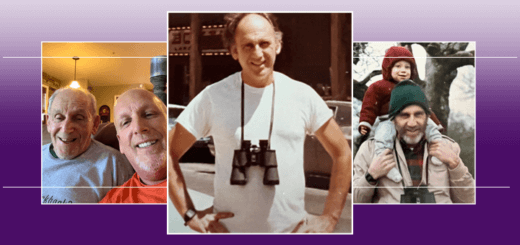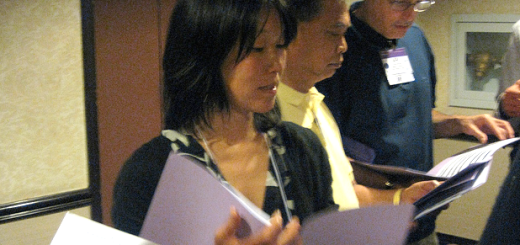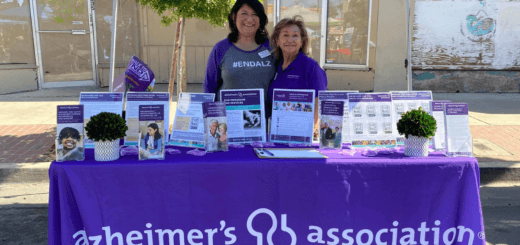Fresno geriatrician on the front lines of dementia
Data appearing in the Alzheimer’s Association 2020 Alzheimer’s Disease Facts and Figures report highlights the need to triple the number of geriatricians available to care for those 65 and older who are projected to have Alzheimer’s dementia in 2050. Fresno geriatrician, Dr. Dzung Trinh, provides care to people living with Alzheimer’s and also helps train the next generation of providers.
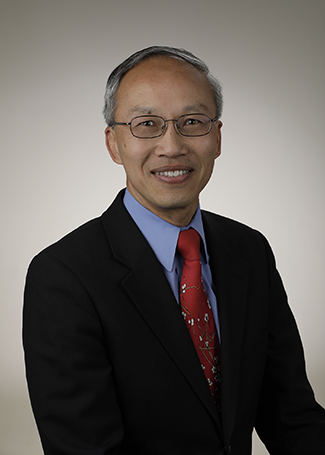
The role of a geriatrician
Geriatricians are physicians who specialize in the care of older adults, including those living with Alzheimer’s or other forms of dementia. Dr. Dzung Trinh finds two aspects of his job particularly rewarding: learning about the past and taking on the challenges of treating patients with multiple health issues.
Stepping back into history
“I love older people,” says Dr. Trinh. “They have so much experience. I always go home and share their stories with my wife. They’re like walking history books.
“They’ll tell me what Fresno was like when they were growing up in the 1900s or 1910s. It’s so different now then it was then. You could read about it in a book, but it’s nice to hear it from someone who lived it.”
Enjoying the challenge
Dr. Trinh notes that older adults may have multiple health issues that can make treating them more complicated. “I like the challenge of how to take care of older patients,” says Dr. Trinh. He enjoys “working with them and understanding their needs.”
How do you care for a patient with Alzheimer’s or a related dementia?
Caring for his patients who are living with Alzheimer’s or other dementia is a multi-step process. It involves getting to know the patient, the family and what kind of help they’re seeking.

Learning about their lives
“The most important part is getting to know who the patient was before dementia,” says Dr. Trinh. “I want to know what their job was, their hobbies and what is important in their life. It gives me a baseline to find out who the patient is.
“I want to know what the patient looks like in their home environment and what their mental capacity and functional status is. If I can’t get that information from the patient, I will ask their family.”
Addressing challenges
“The information about who the patient was, and the patient’s functional status and mental capacity would it help me to take care of the patient and to address any behavioral issues,” says Dr. Trinh. “I also would like to know the family’s wishes and what their financial situation is.
“Depending on the problem, I might give medication, suggest an activity or provide outside services and support. There aren’t medications that can reverse the dementia, but we can make the patient more comfortable and keep the caregiver from getting burnt out.”
Helping families do what’s best for the patient
“It’s important to know what the patient valued,” said Dr. Trinh. “My patients, both those with and without dementia, have goals. Some want to live longer than their grandmother or live long enough to see their great-grandson graduate.” For others, remaining independent is important.
“As patients with dementia progress and family members come to me for advice, I will remind them, “˜I knew your mom and this is what she really valued, so whatever you decide, keep that in mind.'”
Caring for the caregivers
Knowing the importance of caregivers, Dr. Trinh educates them about the disease and offers resources they can use to get a break from their caregiving responsibilities.
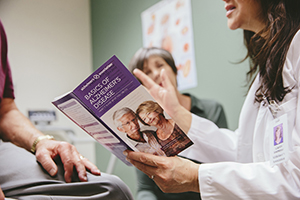
Educating caregivers
“My job is to educate the caregiver. I give them all of the resources I have. I help them understand what dementia means. Sometimes dementia patients say things they don’t mean, and caregivers take it personally.
“Caregivers will tell me they work so hard and the patient says something that hurts them. I try to explain to a caregiver that the patient doesn’t know what they’re saying. They lack the ability to control the impulse.”
Helping caregivers find time for themselves
“Caregivers have such an important role in taking care of patients with dementia,” says Dr. Trinh. Caregiver stress can affect the caregiver’s health and their relationships with others, including the person living with dementia.
“Helping a caregiver find resources depends on the caregiver’s finances,” says Dr. Trinh. “If they can afford it, I might suggest adult daycare to give the caregiver a break. Or, if a patient has long term care insurance, I might refer them to an agency who will provide a paid professional to care for the patient to give the caregiver some free time.”
For families with fewer financial resources, the Alzheimer’s Association and other community nonprofits can educate families on government programs and community supports that may be available to them.
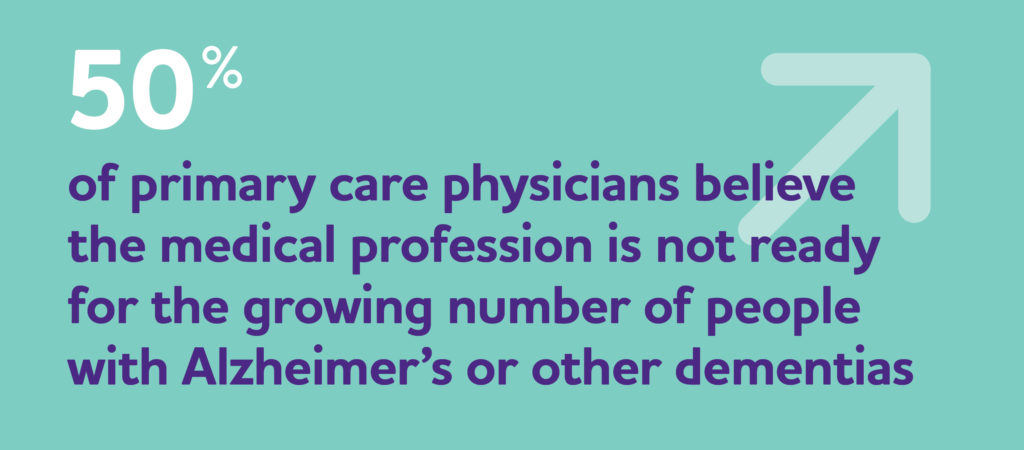
Recruiting future geriatricians
According to the Alzheimer’s Association Facts and Figures report, “As a nation, we need to triple the number of geriatricians who were practicing in 2019 to have enough geriatricians to care for those 65 and older who are projected to have Alzheimer’s dementia in 2050.”
Currently there are 590 geriatricians in the state of California. To be able to serve 10% of people aged 65 and older (the estimated percent of those 65+ living with Alzheimer’s), California will need 1,676 geriatricians by 2050. To serve 30% of older adults, California will need 5,029 Geriatricians by 2050.
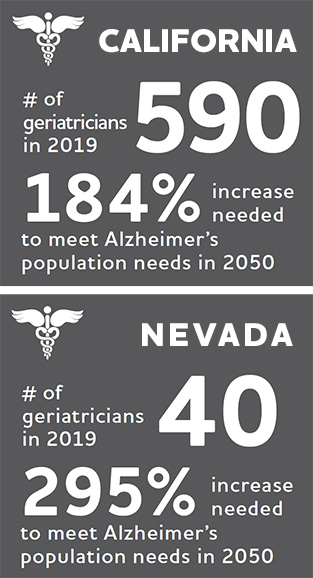
By 2050, Nevada will need 158 geriatricians to serve 10% of people aged 65 and older or 474 to serve 30%.
The Facts and figures report also states that “Primary care physicians recognize that they are on the front lines of this crisis and feel a duty to provide the highest quality care. They report that the medical profession is not prepared to adequately face the problem.”
To help with this issue, Dr. Trinh works as a part time Associate Professor at UCSF Fresno. “My dream is to convince the medical students to go into geriatric medicine,” says Dr. Trinh. “It’s the most rewarding career you will get. You will never worry about losing your job.
“With the population growing year to year we desperately need people to take care of the elderly. I tell my students that working with these patients is like visiting a friend, it’s not just another number.”
Find out more about this year’s Alzheimer’s Association Facts and Figures report by going to alz.org/facts.
Learn more:





